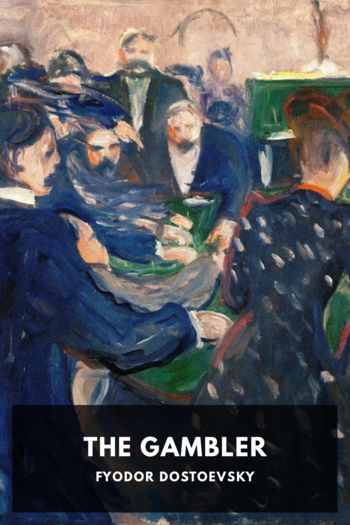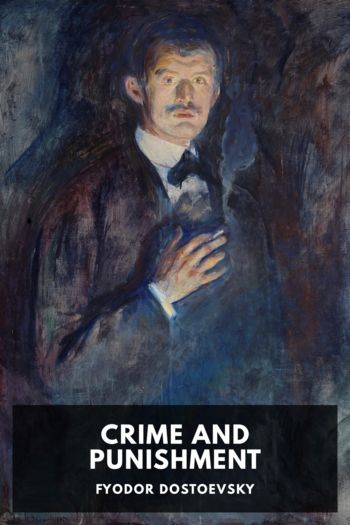Poor Folk by Fyodor Dostoevsky (best fiction books to read .TXT) 📕

- Author: Fyodor Dostoevsky
Book online «Poor Folk by Fyodor Dostoevsky (best fiction books to read .TXT) 📕». Author Fyodor Dostoevsky
How difficult I found it to grow accustomed to my new life! At the time of our removal to St. Petersburg it was autumn—a season when, in the country, the weather is clear and keen and bright, all agricultural labour has come to an end, the great sheaves of corn are safely garnered in the byre, and the birds are flying hither and thither in clamorous flocks. Yes, at that season the country is joyous and fair, but here in St. Petersburg, at the time when we reached the city, we encountered nothing but rain, bitter autumn frosts, dull skies, ugliness, and crowds of strangers who looked hostile, discontented, and disposed to take offence. However, we managed to settle down—though I remember that in our new home there was much noise and confusion as we set the establishment in order. After this my father was seldom at home, and my mother had few spare moments; wherefore, I found myself forgotten.
The first morning after our arrival, when I awoke from sleep, how sad I felt! I could see that our windows looked out upon a drab space of wall, and that the street below was littered with filth. Passersby were few, and as they walked they kept muffling themselves up against the cold.
Then there ensued days when dullness and depression reigned supreme. Scarcely a relative or an acquaintance did we possess in St. Petersburg, and even Anna Thedorovna and my father had come to loggerheads with one another, owing to the fact that he owed her money. In fact, our only visitors were business callers, and as a rule these came but to wrangle, to argue, and to raise a disturbance. Such visits would make my father look very discontented, and seem out of temper. For hours and hours he would pace the room with a frown on his face and a brooding silence on his lips. Even my mother did not dare address him at these times, while, for my own part, I used to sit reading quietly and humbly in a corner—not venturing to make a movement of any sort.
Three months after our arrival in St. Petersburg I was sent to a boarding-school. Here I found myself thrown among strange people; here everything was grim and uninviting, with teachers continually shouting at me, and my fellow-pupils forever holding me up to derision, and myself constantly feeling awkward and uncouth. How strict, how exacting was the system! Appointed hours for everything, a common table, ever-insistent teachers! These things simply worried and tortured me. Never from the first could I sleep, but used to weep many a chill, weary night away. In the evenings everyone would have to repeat or to learn her lessons. As I crouched over a dialogue or a vocabulary, without daring even to stir, how my thoughts would turn to the chimney-corner at home, to my father, to my mother, to my old nurse, to the tales which the latter had been used to tell! How sad it all was! The memory of the merest trifle at home would please me, and I would think and think how nice things used to be at home. Once more I would be sitting in our little parlour at tea with my parents—in the familiar little parlour where everything was snug and warm! How ardently, how convulsively I would seem to be embracing my mother! Thus I would ponder, until at length tears of sorrow would softly gush forth and choke my bosom, and drive the lessons out of my head. For I never could master the tasks of the morrow; no matter how much my mistress and fellow-pupils might gird at me, no matter how much I might repeat my lessons over and over to myself, knowledge never came with the morning. Consequently, I used to be ordered the kneeling punishment, and given only one meal in the day. How dull and dispirited I used to feel! From the first my fellow-pupils used to tease and deride and mock me whenever I was saying my lessons. Also, they used to pinch me as we were on our way to dinner or tea, and to make groundless complaints of me to the head mistress. On the other hand, how heavenly it seemed when, on Saturday evening, my old nurse arrived to fetch me! How I would embrace the old woman in transports of joy! After dressing me, and wrapping me up, she would find that she could scarcely keep pace with me on the way home, so full was I of chatter and tales about one thing and another. Then, when I had arrived home merry and lighthearted, how fervently I would embrace my parents, as though I had not seen them for ten years. Such a fussing would there be—such a talking and a telling of tales! To everyone





Comments (0)